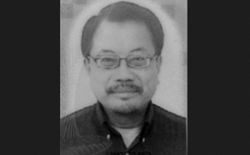
US Secretary of State Antony Blinken will travel to Hanoi later this week to oversee the groundbreaking of a new American embassy in the Vietnamese capital, deepen a relationship that will allow supply chain diversification away from China and counter “bullying” in the region.
Speaking to reporters on Monday, Daniel Kritenbrink, assistant secretary of state for East Asian and Pacific affairs, touted Washington’s developing relations with Vietnam.
Save 30% and win Bosch appliances! More Info











































